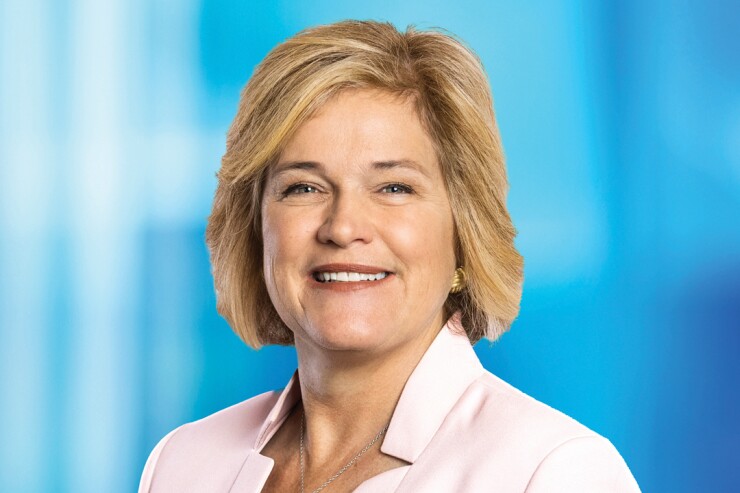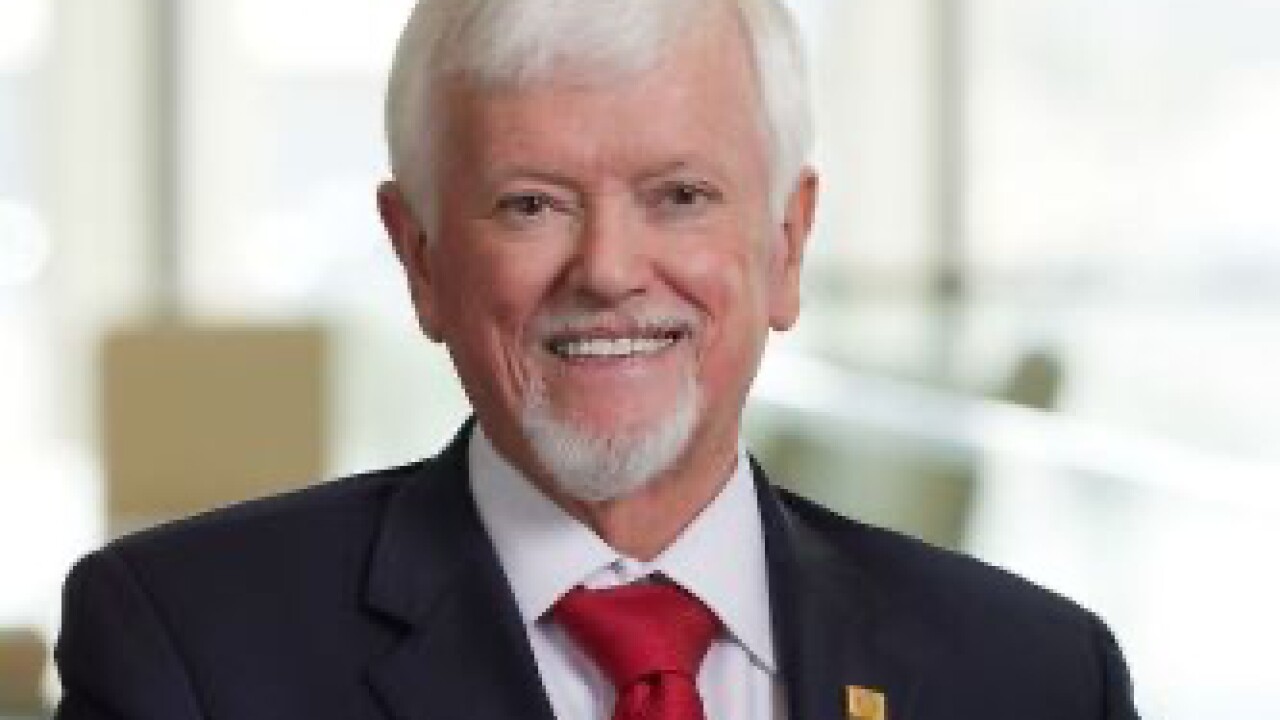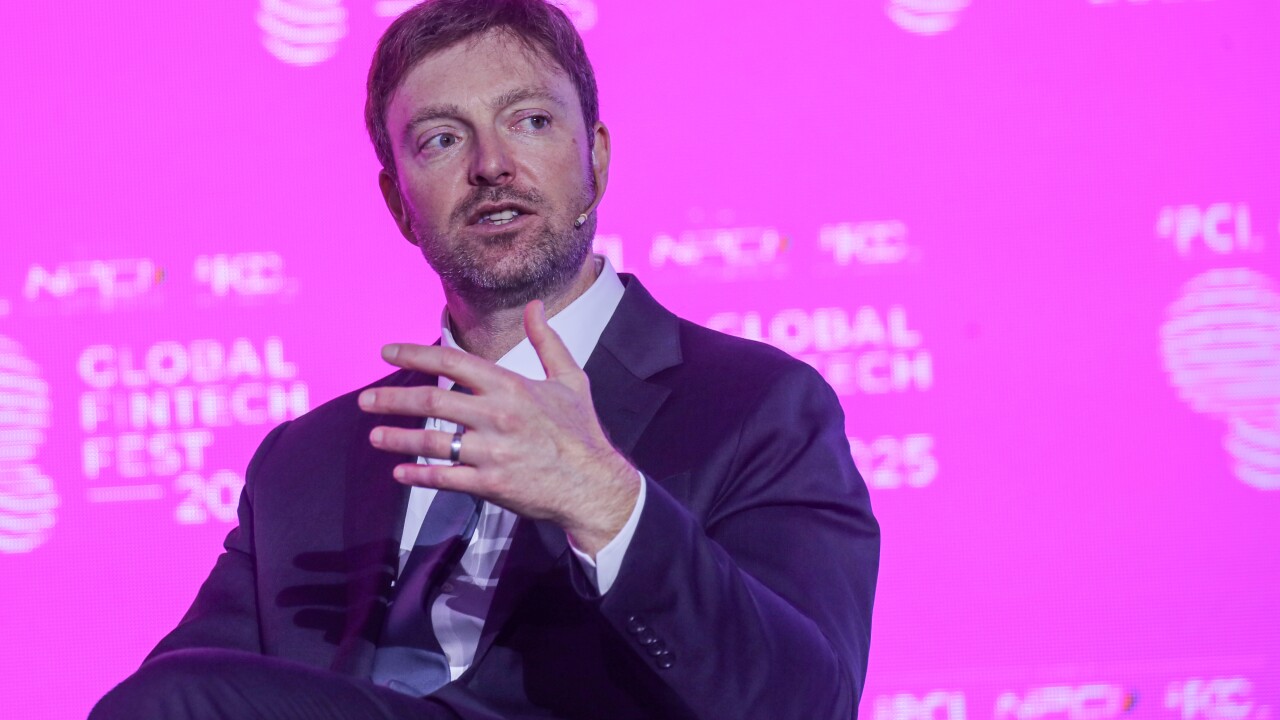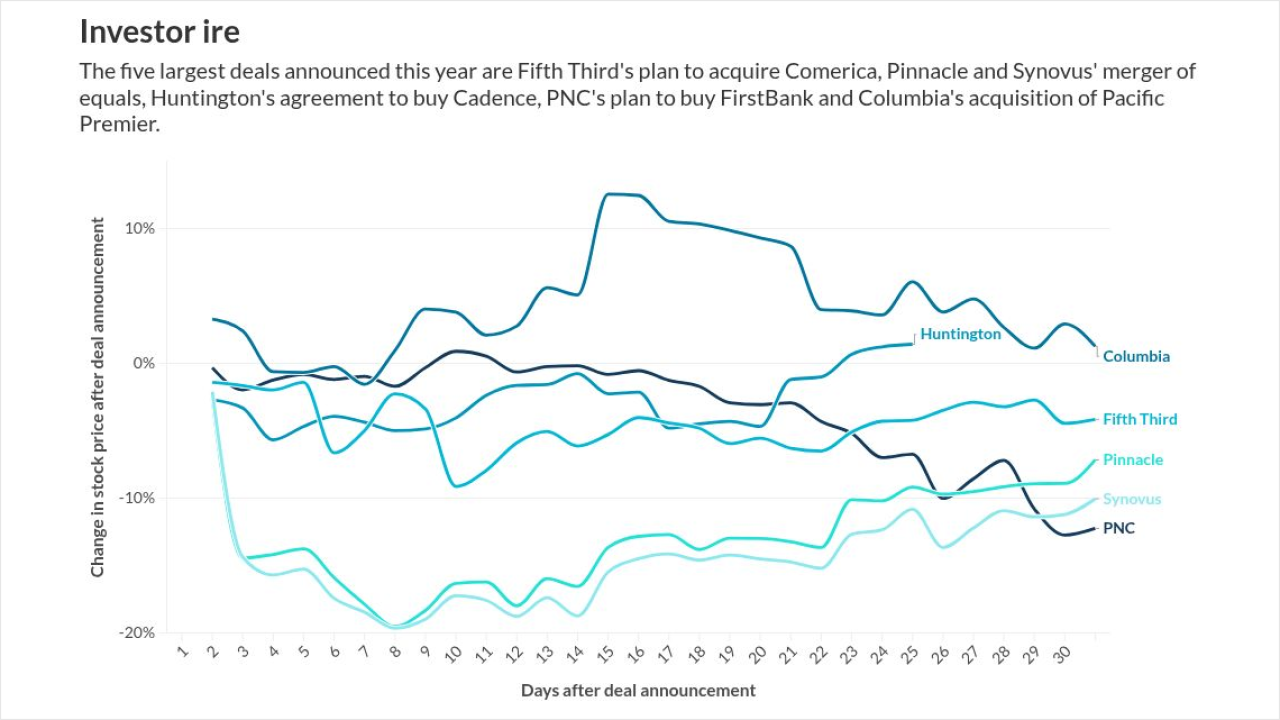
In a career spanning 35 years, Franklin Templeton's Jenny Johnson has been a key force behind the company's growth into one of the world's largest investment managers, with approximately $1.5 trillion in assets under management.
As president and CEO, Johnson is responsible for developing Franklin Templeton's overall strategic direction, executing on that strategy and advancing the firm's client-centric culture. A granddaughter of Franklin Templeton founder Rupert H. (Harris) Johnson Sr., she joined the company in 1988 and has held leadership roles in all the firm's major divisions, including investment management, distribution, technology, operations and wealth management.
Johnson has led the company's evolution in recent years, diversifying its investment capabilities and client solutions through key strategic purchases and investments. She became CEO in February 2020, moving from a role as president and chief operating officer.
The company has purchased ten companies in the past three years; the most recent is Putnam Investments. "Our acquisitions are focused on two things: either filling product gaps in places where we think there is a possibility of above-average growth, or where we can have a deeper connection with a distribution channel," Johnson said. Franklin Templeton purchased Putnam for Putnam's retirement products. "We've always under-punched our weight in this area, and this acquisition gives us better products and a good team."
Franklin Templeton is also interested in three big secular trends, Johnson said: active investing giving way to passive investing; exchange-traded funds taking the place of traditional municipal funds and the growth of privately held assets. "We have half the number of public companies now that we did in 2000, and companies are waiting much longer to go public," Johnson said. "They used to wait an average of three years. Now they wait nearly 20 years." Secondary markets help stockholding employees liquidate wealth if they need to, and company executives have the opportunity to run firms without the pressure to meet quarterly earnings expectations.
Johnson is enthusiastic about private equity and private credit as well. "Banks don't want to lend like they used to lend," she said. She hopes to find appropriate products and strategies that will let ordinary investors benefit from the returns that both private credit and private equity achieved instead of reserving them for qualified investors. Of its $1.5 trillion in assets under management, Franklin Templeton has $257 billion in alternative investments.
"We have some retirement accounts where there are private equity investments as part of a mutual fund," Johnson said. "The challenge is that, if someone suddenly needs their savings and it's tied up in these private assets, they aren't very liquid." Mutual funds have the ability to make emergency loans, and Johnson would like to see more mutual fund access to private equity.
Johnson is also passionate about blockchain and believes that it will help create liquidity in private equity. "Blockchain technology does three things well," she said. "It has a payment mechanism. It can execute smart contracts, which takes frictional costs out of the transaction. It's a source of truth, because it's a general ledger. If you own a token, whatever rights it has are yours, and a token can represent your ownership."
All of these qualities could let blockchain fuel a secondary stock market. Franklin Templeton has debuted an SEC-approved, on-chain money market fund, called the Franklin OnChain U.S. Government Money Market Fund (FOBXX), supported on the Stellar blockchain network and Ethereum via a layer-two blockchain Polygon. Blockchain-integrated systems have fueled operational efficiencies for the fund, including better security and faster transaction processing.
The company believes that this is the first U.S.-registered mutual fund to use public blockchain to process transactions and record share ownership. The work the firm is doing in blockchain may not fully pay off for years, Johnson said, but is important to begin now.
Despite its size and global reach, Franklin Templeton is essentially a family business. "I'm one of seven kids and the one who always wanted to work in the company," Johnson says. She has advice for anyone who hopes to run a family business. "You have to think of the business entity as something that's healthy on its own and work to keep it healthy," she advised. "Put aside your personal politics. I was at this company for 32 years before becoming CEO. It's a public company, and I have a fiduciary responsibility for all the shareholders."
Johnson serves on a variety of boards, including the International Advisory Panel of the Monetary Authority of Singapore, the New York Stock Exchange board advisory council, Memorial Sloan Kettering cancer foundation, Thermo Fisher Scientific and Catalyst. In 2023, she was appointed to the U.S.-Brazil CEO Forum.





